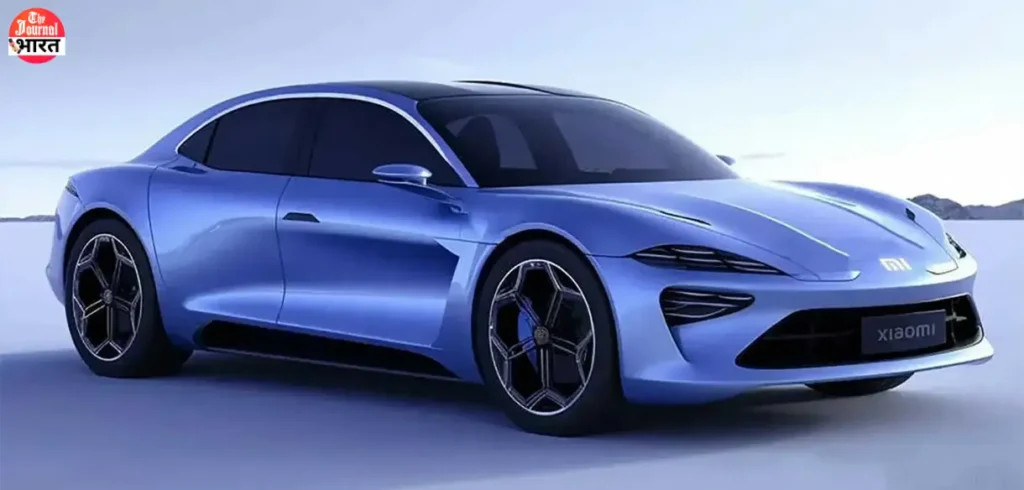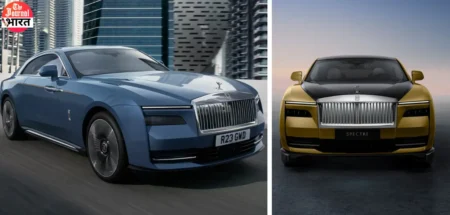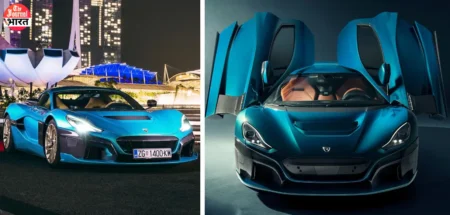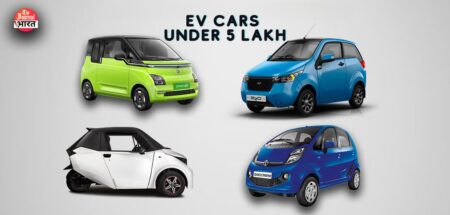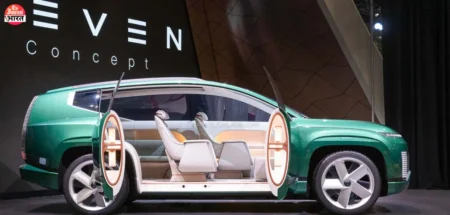With time the segment pertaining to electric vehicles is developing at a very fast pace, the companies which were already in the sector are also developing in the sector and many new are also stepping into the area. One such company which has been into the sector of Chinese smartphones is all set to enter into the electric car competition with the launch of its first electric car.
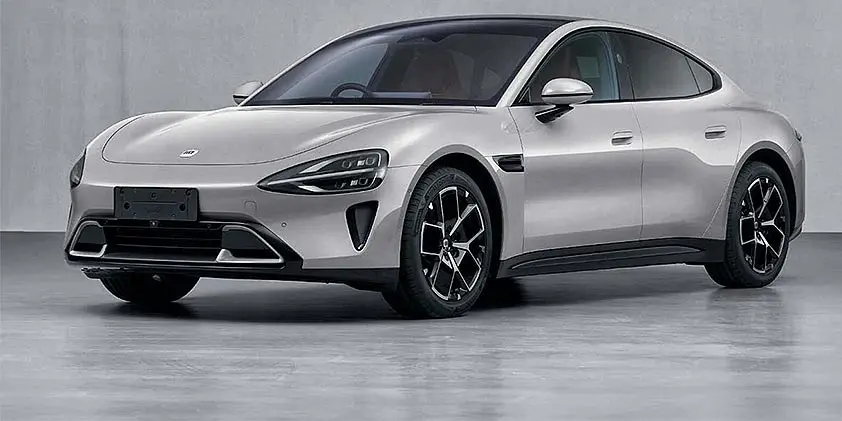
Thus, Xiaomi has also entered into the electric vehicle (EV) market and has marked its significant milestone. This move signals a revolutionary shift, not just for the company, but for the entire industry. The Xiaomi SU7 EV, a beacon of innovation and anticipation, represents a new chapter in electric mobility.
The Xiaomi SU7, Xiaomi’s upcoming electric car in the EV vehicle market, is an exciting development in the EV industry. The car will be contract-manufactured by BAIC and it was previously known under the codename of MS11. The company has recently revealed some details about its EV thus; a detailed overview of this upcoming electric sedan is given below:
Variants and Dimensions
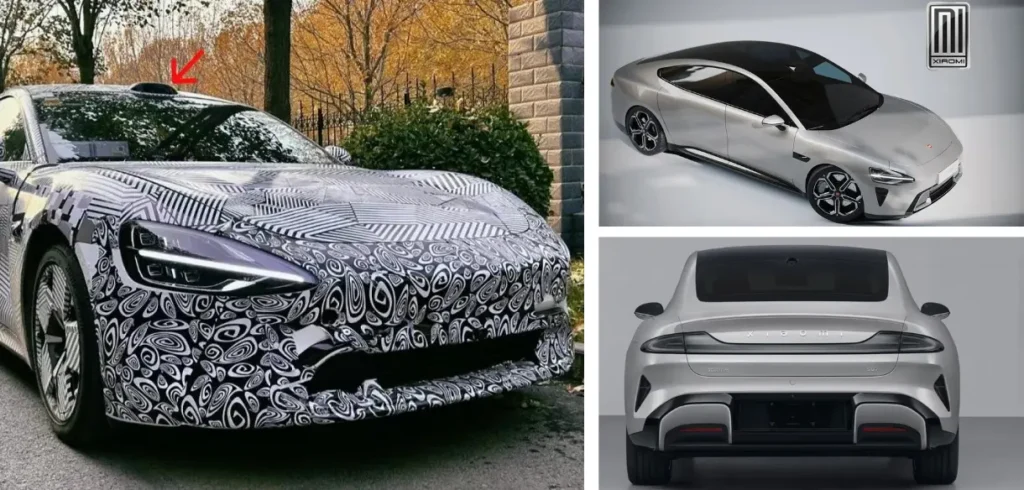
The SU7 series is going to include three different variants for its buyers to choose from:
· The standard SU7
· SU7 Pro
· SU7 Max
The company will also offer its customers two different wheel options in the car. They are 19-inch and 20-inch wheels.
Read More: Electric Cars in India Under 5 Lakhs
Dimensions
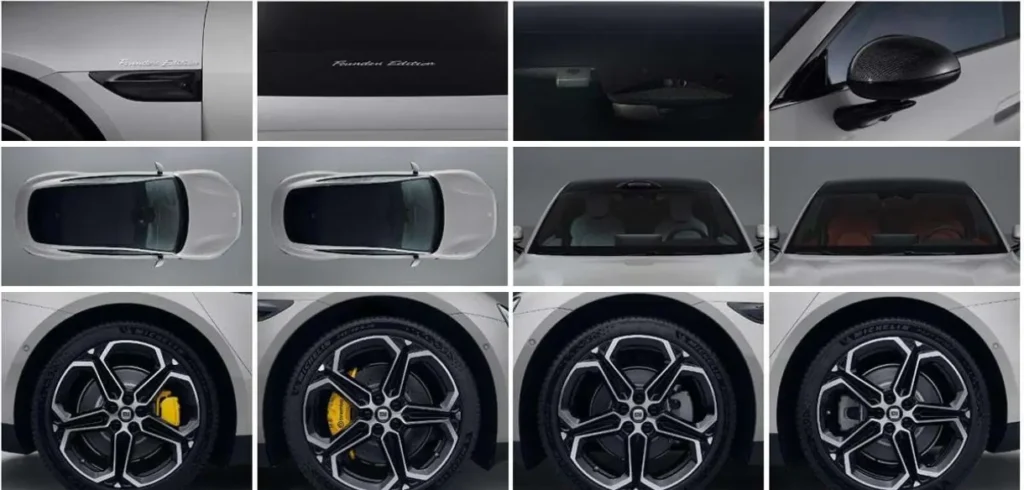
Xiaomi SU7 is going to be much bigger than other EV cars that are already in the market like Tesla Model 3. This feature of the car is going to make it more customer friendly. The dimensions of the car are mentioned in the table below:
| Length | 4,997 mm |
| Width | 1,963 mm |
| Height | 1,455 mm |
| Wheelbase Spans | 3,000 mm |
The base model of the car weighs 1,980kg, while the Pro and Max variants are heavier than the one mentioned and will be weighing 2,205kg.
Read More: 5 Best Electric SUV Cars in India
Powertrain and Performance
The SU7 will be available with two powertrain options-a rear-wheel-drive setup with a 295bhp electric motor and an all-wheel-drive version with a maximum combined power output of 664bhp. SU7 Pro and Max models are powered by dual motors, offering 295hp and 386hp, respectively.
Top Speed
The base model which is weighing at 1,980 kg will be able to reach the top speed of 210 km/h, whereas the higher-spec models weighing 2,205 kg can reach up to 265 km/h.
Battery and Range
The base SU7 will feature a lithium-iron phosphate (LFP) battery from BYD, while the higher-end models will have an NMC battery from CATL. The exact capacities and range details are yet to be disclosed.
Also Read: List of 500 KM Range Electric Cars in India
Design and Features
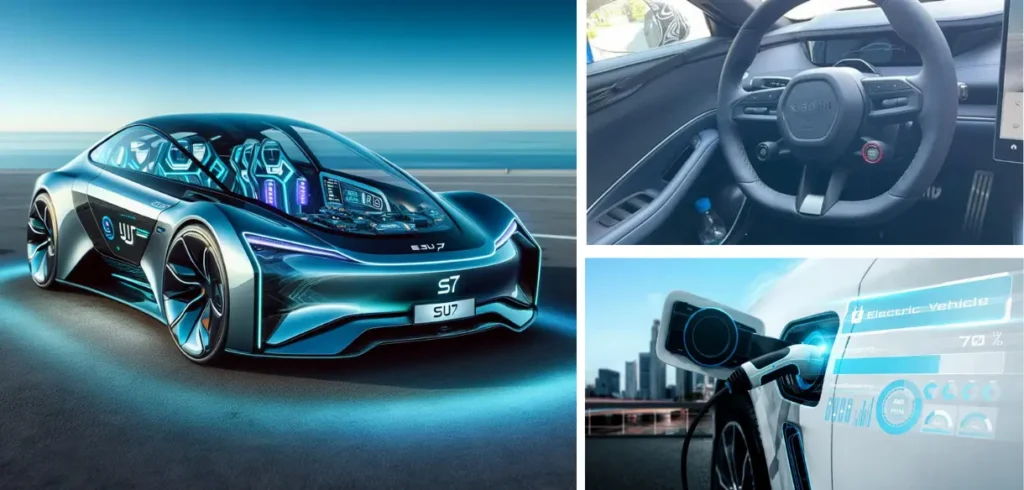
The SU7’s design incorporates elements from McLaren, Porsche, and Tesla, offering a unique aesthetic blend. It includes connected taillights and an impressive wheel design. The car’s front has a resemblance to McLaren 720S’ coupe which gives it much richer looks for the owners to show off. At the rear also the car reveals numerous design elements which will soon be a statement when it enters the real markets.
Interior System: The car will integrate Xiaomi’s HyperOS for its in-car system, offering connectivity with Xiaomi devices.
Additional Features: The SU7 boasts a LiDAR system for enhanced driver assistance and potential autonomous features. It also has a camera on the B-pillar, hinting at possible face recognition unlocking functionality.
Manufacturing and Availability
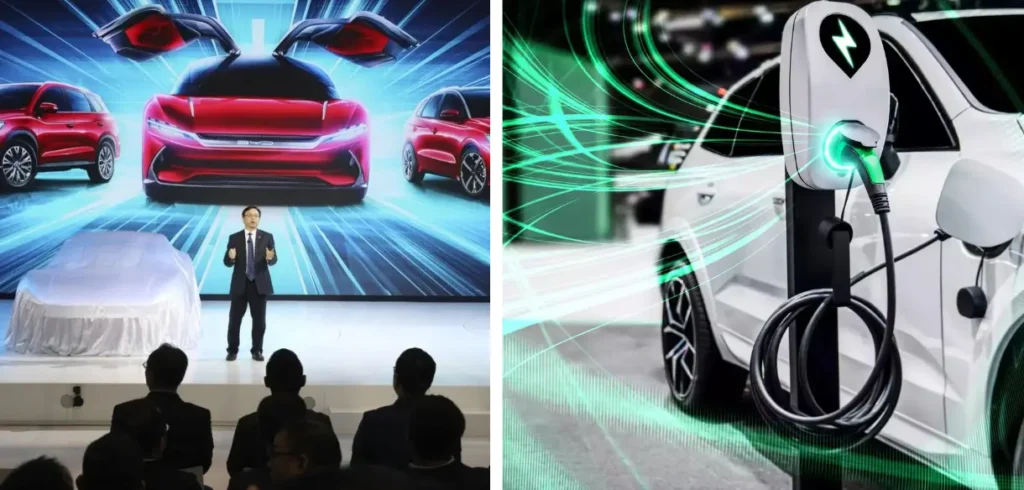
- Production: Mass production is set to commence in December 2023 at Beijing Automotive Group Co., Ltd. (BAIC)’s factory, with deliveries expected to start in February 2024.
- Pricing: The starting price is rumoured to be around 149,000 Yuan (~$20,500), that is ₹17-18 lakh INR approximately.
- Colour Options: It will likely be available in grey and blue shades.
In summary, the Xiaomi SU7 series is a bold step by Xiaomi into the EV market, promising a blend of innovative technology, robust performance, and a distinct design. As with any upcoming vehicle, potential buyers should look out for official announcements for the most accurate and up-to-date information.
See more – Upcoming Hydrogen Cars in India 2024

